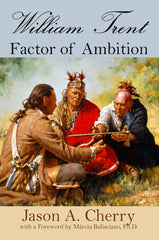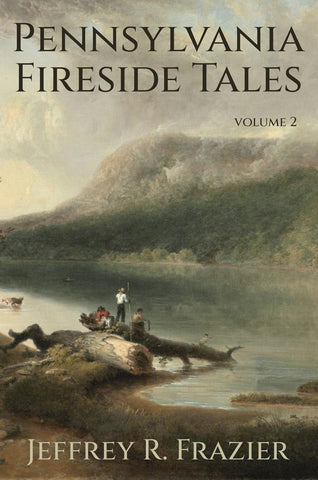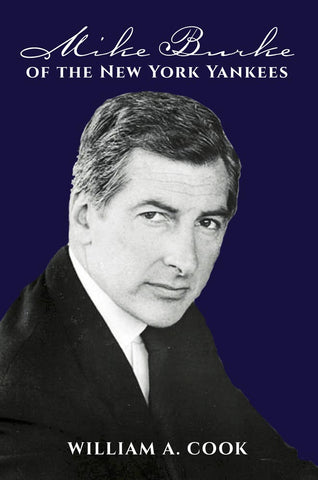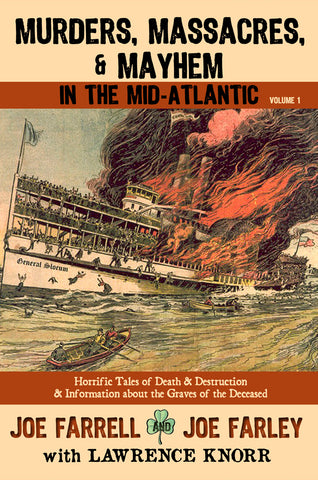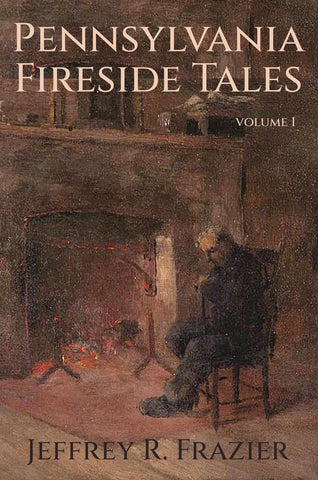On December 1st, 1784, along a cold and wintry Fourth Street in Philadelphia, Major William Trent sputtered his last breath surrounded by friends and family and soon became forgotten in history.
The son of a Philadelphia shipping merchant and the namesake for the capital of New Jersey, Trent’s own legacy as a gentleman, throughout the latter half of the eighteenth century was always remembered for his controversial role at Fort Pitt in “gifting” smallpox blankets to the Indians that early summer of 1763. The truth is, however, over the course of his life Trent was always given an unfair depiction as a scapegoat and blamed for villainy that was not his own creation.
A seasoned veteran officer of three different conflicts, he was praised for his “frame of speech to the Indians, in their style”. He was also the factor for one of the most powerful land speculating companies in the world because of his notorious reputation of excellent penmanship and ledger keeping. By the eve of the American Revolution, Trent became the courageous face of westward expansion that began diligently alongside his friend and “king of the traders” George Croghan.
From the author of Pittsburgh’s Lost Outpost: Captain Trent’s Fort, comes a new definitive look through the eyes of a misunderstood backcountry merchant who not only overcame obstacles and suffered loss, but whose strong quill and rebellious interactions with future founding fathers Benjamin Franklin, and George Washington, ambitiously helped shape and form the future United States of America.
What Others Are Saying:
“Willam Trent was an omnipresent figure in America at its most critical times. As an agent of change operating in an imperial world, he travelled vast distances at home and abroad. The author traces his story with a master’s stroke, unlikely to be surpassed. Cherry’s biography of William Trent is superb.”—Brady J. Crytzer author of The Whiskey Rebellion: A Distilled History of an American Crisis
“Highlighting one of the most influential, but least known, personalities of the colonial Pennsylvania frontier, Cherry’s biography of William Trent illuminates the dangerously
intertwined worlds of trade, diplomacy, warfare, and land speculation that defined the 18th-century Ohio Country. A longtime business partner of trader George Croghan, commander of the first fort at the site of present-day Pittsburgh, and a key conspirator in the plot to spread smallpox to Lenape leaders in 1763, Trent’s complicated, and often contradictory, career is covered in minute detail. Students of the colonial fur trade, early Western Pennsylvania history, and American Indian diplomacy will want to consider this well researched work.”—Andrew E. Masich, PhD, President & CEO, Senator John Heinz History Center
"In William Trent: Factor of Ambition, Jason Cherry reconstructs the dramatic life of a Pennsylvanian fur trader and soldier who played a key role on colonial America's Appalachian frontier during an era of momentous conflict involving European powers and indigenous nations, especially the French and Indian War and the ensuing Pontiac Uprising. In unprecedented detail, and drawing upon meticulous research, author Jason Cherry offers valuable insights into an individual whose remarkable commercial and military career often intersected with pivotal events and personalities, witnessing, for example, the rise of the young George Washington. The informative core narrative, which covers Trent's lifespan from c.1722 to 1784, is enhanced by a deep knowledge of the landscape in which his exploits unfolded, and the material culture of the diverse societies he experienced.—Dr. Stephen Brumwell, author of George Washington: Gentleman Warrior
by Jason A. Cherry
Page Count: 474
Trim Size: 6 x 9
Publish Date: February 29, 2024
Imprint: Sunbury Press
Genre: History
BIOGRAPHY & AUTOBIOGRAPHY / Adventurers & Explorers
HISTORY / United States / Colonial Period (1600-1775)
HISTORY / US History / Mid-Atlantic
You might also like ...
-
Pennsylvania Fireside Tales Volume 5$19.95Anyone wishing to unlock the secrets behind Pen...Anyone wishing to unlock the secrets behind Pennsylvania’s treasure trove of old-time legends and folktales should read this book and its predecessors. Fascinating and unbelievable as some of these...
-
Leaving Germany: One Family's Post-World War I American Journey$14.95by A. B. Zeitler – “I almost fell overboard on...by A. B. Zeitler – “I almost fell overboard on my way to America,” my father often said. This quote begins many immigrant adventures detailed in Leaving Germany: One Family’s Post-World War I Ame...
-
Floppy Feathers$24.95In Deals, Danger, Destiny—the first book in thi...In Deals, Danger, Destiny—the first book in this series—John LaCasse takes us through the glamour of wealth and his high-octane lifestyle. He opens the existential crises of fast and furious living...
-
Graves of Our Founders: Vol. 3: Their Lives, Contributions, and Burial Sites$24.95Their Lives, Contributions, and Burial Sites Jo...Their Lives, Contributions, and Burial Sites Joe Farrell, Joe Farley, and Lawrence Knorr have traveled across the eastern USA to the graves of over 200 founding fathers (and mothers) responsible fo...
-
Pennsylvania Fireside Tales Volume 4$19.95Volume Four of the Pennsylvania Fireside Tales ...Volume Four of the Pennsylvania Fireside Tales series contains more of the old-time Pennsylvania mountain legends and folktales collected by the author over the last fifty years. Just like in his ...
-
Slavery and Abolitionism on Cape Cod$19.95A Strong Cape Cod Connection From the start of ...A Strong Cape Cod Connection From the start of the Puritan era through the end of the Revolutionary War, Boston was the central hub of the slave trade. Slaves were brought onboard ships from the Af...
-
1960: When the Pittsburgh Pirates Had Them All the Way$22.95This book covers the entire 1960 Pittsburgh Pi...This book covers the entire 1960 Pittsburgh Pirates season from spring expectations through a season of destiny culminated by the wildest, most lopsided World Series ever—one which saw a team get ...
-
Before George: The Presidents of Congress$16.95Before the US Constitution defined the role of ...Before the US Constitution defined the role of the President of the United States as the chief executive, fourteen men filled the role of President of the United States in Congress Assembled. Thoug...
-
Twisted Strands$11.95by Carol Vento War begets unlikely pairings. In...by Carol Vento War begets unlikely pairings. In the shadow of World War I, Carol Schultz Vento’s father, Arthur Dutch Schultz, was born to two military veterans. In the immediate aftermath of World...
-
When Yamamoto Ran Wild$27.95From Pearl Harbor to Midway In November 1940, A...From Pearl Harbor to Midway In November 1940, Admiral Isoroku Yamamoto, commander-in-chief of the Japanese Combined Fleet, told Prime Minister Prince Konoye, “If I am forced to wage war with the Un...
-
Pennsylvania Fireside Tales Volume 3$19.95It is the author’s opinion that it is not an ex...It is the author’s opinion that it is not an exaggeration to say that if anyone wishes to experience one of those rare moments of true happiness that occurs in a lifetime, they should go to the mou...
-
The Hidden Legacy of World War II (2nd Edition)$16.95by Carol Vento Carol Schultz Vento recounts the...by Carol Vento Carol Schultz Vento recounts the post-World War II years of her famous father "Dutch" Schultz. "Carol Schultz Vento's testimonial and others like it do not diminish the wartime gener...
-
What's In Ted's Wallet?$19.95- The Newly Revealed T206 Baseball Card Collect...- The Newly Revealed T206 Baseball Card Collection of Thomas Edison's Youngest Son Thomas Edison was a long-time baseball fan. In his younger years, he once proclaimed, he could have named the play...
-
Pennsylvania Fireside Tales Volume 2$19.95In offering a second volume of Pennsylvania mou...In offering a second volume of Pennsylvania mountain legends and folktales to the reading public, the author does so with a note of appreciation to all who found the first volume of legends of inte...
-
Affective Memories$34.95This is the riveting, brutally honest story of ...This is the riveting, brutally honest story of a man’s struggle to make something of himself in the theater. Coming from meager circumstances in the Ozark Mountains, he fights his way up the shaky ...
-
Lew$19.95The Life and Times of the Author of Ben Hur -- ...The Life and Times of the Author of Ben Hur -- An analytical and deeply rich historical biography of a great American author who is little known or remembered today. Lew Wallace, a fascinating and...
-
Mike Burke$19.95of the New York Yankees Mike Burke arguably led...of the New York Yankees Mike Burke arguably led one of the most interesting lives in twentieth century America. It seems that it was his destiny to have a rendezvous with history at every turn in ...
-
Murders, Massacres, and Mayhem in the Mid-Atlantic Volume 1$19.95The authors have combed the Mid-Atlantic region...The authors have combed the Mid-Atlantic region, including Pennsylvania, Maryland, New Jersey, New York, Delaware, and Washington, DC, to write about and visit the graves of some of the most horren...
-
Keystone Tombstones - Volume 5$19.95Biographies of Famous People Buried in Pennsylv...Biographies of Famous People Buried in Pennsylvania Joe Farrell, Joe Farley, and Lawrence Knorr are back with more interesting biographies and unusual tombstones. Included in this volume: Dick All...
-
Richard Peters: Provincial Secretary and Cleric, 1704-1776$24.95Richard Peters was one of the most important of...Richard Peters was one of the most important officials in colonial Pennsylvania. In the employ of the Penns, Peters was at different times Secretary of the Land Office, Secretary of the Province, a...
-
Pennsylvania Fireside Tales Volume 1$16.95Anyone who has ever lived in the great state of...Anyone who has ever lived in the great state of Pennsylvania has at one time or another either read about or heard someone talk about one of its folktales and legends. These types of stories seem ...
-
Nothing Left to Prove, Nothing Left to Hide$19.95A man grows up in the shadow of a heroic WWII v...A man grows up in the shadow of a heroic WWII veteran and takes extreme measures to follow in his father’s impossible footsteps, hoping to finally earn his parents’ love and respect. Nothing Left ...
-
Pennsylvania Mountain Landmarks Volume 3$14.95Who among us has not sometimes gazed upon the c...Who among us has not sometimes gazed upon the cloud-capped mountains of Pennsylvania and wondered what secrets lie hidden in their dark hollows and along their rushing glens? Who has hiked their sy...
-
Far Away Places$49.95Vice Admiral Charles Emery Rosendahl and the Na...Vice Admiral Charles Emery Rosendahl and the Navy’s Airship Program Following the First World War, it was expected that the next war would be between Japan and the U.S. for control of the vast Paci...
-
Seeking Truth in America$24.95Mark Singel, the former Lieutenant Governor and...Mark Singel, the former Lieutenant Governor and former acting Governor of Pennsylvania, provides his wit, wisdom, and guidance regarding recent events on both the national and state levels. The art...
-
The House Divided$19.95- The Story of the First Congressional Baseball...- The Story of the First Congressional Baseball Game - Most years since 1909, Democrats and Republicans on Capitol Hill have squared off in a good-natured contest -- the Congressional Baseball Gam...
-
The Relations of Milton Snavely Hershey$49.95by Lawrence Knorr Are you related to the King o...by Lawrence Knorr Are you related to the King of Chocolate? Hershey had no heirs, but he had plenty of cousins. If you are descended from Mennonite or Pennsylvania German roots, there is a very goo...
-
City of Brotherly Blood$19.95- My Political Adventure of Power, Corruption ...- My Political Adventure of Power, Corruption and Redemption in Philadelphia - Mike Stack was born to power and followed his father and grandfather into the ring of fire of Philadelphia politics....
-
Massachusetts Patriots$14.95Their Lives, Contributions, and Burial Sites Jo...Their Lives, Contributions, and Burial Sites Joe Farrell, Joe Farley, and Lawrence Knorr have traveled across the eastern USA to the graves of over 200 founding fathers (and mothers) responsible fo...
-
The Amazing Life and Loves of Lady Marjorie Fetter Goossens$14.95... and startling revelations on the scandal th...... and startling revelations on the scandal that destroyed the magnificent career of Sir Eugene Goossens III, Australia’s most celebrated Classical Orchestra Conductor by Glenn N. and Barbara L. H...
-
The Descendants of Hans Peter Knorr$29.95by Lawrence Knorr From the small farming villag...by Lawrence Knorr From the small farming village of Altfeld, Bavaria, near the City of Werthheim, Hans Peter Knorr/Knauer and his brothers Melchior and Johannes left for the colony of Pennsylvania...
-
Delaware Patriots$9.99Their Lives, Contributions, and Burial Sites Jo...Their Lives, Contributions, and Burial Sites Joe Farrell, Joe Farley, and Lawrence Knorr have traveled across the eastern USA to the graves of over 200 founding fathers (and mothers) responsible fo...
-
Maryland Patriots$9.99Their Lives, Contributions, and Burial Sites Jo...Their Lives, Contributions, and Burial Sites Joe Farrell, Joe Farley, and Lawrence Knorr have traveled across the eastern USA to the graves of over 200 founding fathers (and mothers) responsible fo...
-
The Forgotten Marlins$27.95- A Tribute to the 1956-1960 Original Miami Ma...- A Tribute to the 1956-1960 Original Miami Marlins - ~~~ The Forgotten Marlins: A Tribute to the 1956-1960 Original Miami Marlins brings to life one of the most colorful and flamboyant teams to ...
-
The Flip Side of Greatness$14.95- The Baseball Bozo Award 1920-1999 - The Fli...- The Baseball Bozo Award 1920-1999 - The Flip Side of Greatness: The Baseball Bozo Award 1920-1999, good-naturedly “honors” players who toiled on some of the game’s greatest teams of all time bu...
-
Rhode Island Patriots$9.99Their Lives, Contributions, and Burial Sites Jo...Their Lives, Contributions, and Burial Sites Joe Farrell, Joe Farley, and Lawrence Knorr have traveled across the eastern USA to the graves of over 200 founding fathers (and mothers) responsible fo...
-
Deadball Mayhem$29.95- Scoundrels, Scandalous Behavior, and Tragic E...- Scoundrels, Scandalous Behavior, and Tragic Events - Mayhem and tragedy prevailed throughout baseball’s Deadball Era. Throughout the 1890s and Deadball Era, noteworthy events occurred, cementing...
-
In the Twist of the Dial$19.95- What Happened to Radio, 1960 to 2020 - Joe ...- What Happened to Radio, 1960 to 2020 - Joe Taylor, on the air and in the boss’s chair witnessed and was part of how radio changed from the end of the network era, through the days of Top 40, th...
-
Vietnam, No Regrets$19.95by J Richard Watkins - One Soldier's Tour of Du...by J Richard Watkins - One Soldier's Tour of Duty - In the 30 plus years since its conclusion, countless volumes have been crafted regarding the Vietnam War, not to mention movies, television spec...
-
Pennsylvania Fireside Tales Volume 7$19.95Once again the author transports us back throug...Once again the author transports us back through the mists of time and puts us down in a fog-choked hollow or on top of a cloud-covered mountaintop where we can be entertained by hearing about a qu...
-
Voices from Early America$24.95What was life really like for most Americans in...What was life really like for most Americans in centuries past? These stories recreate the lives and times of four different Colonial and Victorian era families, and as recorded in their own diarie...
-
Life, Liberty, and the Pursuit of Happiness$19.95- Fourth of July Stories - This book tells Am...- Fourth of July Stories - This book tells American stories occurring on one day–the Fourth of July–beginning with the Declaration of Independence on July 4, 1776, and throughout our 250 year his...
-
Beyond the Green Widow$22.95Prohibition began as a well-intentioned and ear...Prohibition began as a well-intentioned and earnest effort by politicians and temperance movement leaders to stem the tide of evils threatening Americans due to the use of alcohol. However, none co...
-
New York Patriots$16.95Their Lives, Contributions, and Burial Sites Jo...Their Lives, Contributions, and Burial Sites Joe Farrell, Joe Farley, and Lawrence Knorr have traveled across the eastern USA to the graves of over 200 founding fathers (and mothers) responsible fo...
-
New Jersey Patriots$14.95Their Lives, Contributions, and Burial Sites Jo...Their Lives, Contributions, and Burial Sites Joe Farrell, Joe Farley, and Lawrence Knorr have traveled across the eastern USA to the graves of over 200 founding fathers (and mothers) responsible fo...
-
Pennsylvania Fireside Tales Volume 6$19.95Here in the Keystone State, as time passes by, ...Here in the Keystone State, as time passes by, it becomes harder to hear a first-hand account of what life and times were like in the Pennsylvania mountains prior to the invention of the “horseless...
-
Prohibition's Prince 2nd Ed$29.95This new edition combines the first edition and...This new edition combines the first edition and Prince and the Paupers into one volume. Author and historian Guy Graybill presents the entertaining tale of one of America's most prolific moonshine...
-
One Room Schoolhouses of the Mahantongo Valley$14.95Steve and Joan Troutman have collected the hist...Steve and Joan Troutman have collected the histories and photographs of the various one-room schoolhouse of the Mahantongo Valley, of Northumberland and Schuylkill Counties, Pennsylvania, including...
-
The Final Resting Place - Calvary Cemetery$16.95The indelible image lingers from every cemetery...The indelible image lingers from every cemetery and nostalgic detail consuming the human mind. It is a sumptuous palace swarming with bodies from the past. Cemeteries can be dynamically active or...
-
Pennsylvania Fireside Tales Volume 5$19.95Anyone wishing to unlock the secrets behind Pen...Anyone wishing to unlock the secrets behind Pennsylvania’s treasure trove of old-time legends and folktales should read this book and its predecessors. Fascinating and unbelievable as some of these...
-
Leaving Germany: One Family's Post-World War I American Journey$14.95by A. B. Zeitler – “I almost fell overboard on...by A. B. Zeitler – “I almost fell overboard on my way to America,” my father often said. This quote begins many immigrant adventures detailed in Leaving Germany: One Family’s Post-World War I Ame...
-
Floppy Feathers$24.95In Deals, Danger, Destiny—the first book in thi...In Deals, Danger, Destiny—the first book in this series—John LaCasse takes us through the glamour of wealth and his high-octane lifestyle. He opens the existential crises of fast and furious living...
-
Graves of Our Founders: Vol. 3: Their Lives, Contributions, and Burial Sites$24.95Their Lives, Contributions, and Burial Sites Jo...Their Lives, Contributions, and Burial Sites Joe Farrell, Joe Farley, and Lawrence Knorr have traveled across the eastern USA to the graves of over 200 founding fathers (and mothers) responsible fo...
-
Pennsylvania Fireside Tales Volume 4$19.95Volume Four of the Pennsylvania Fireside Tales ...Volume Four of the Pennsylvania Fireside Tales series contains more of the old-time Pennsylvania mountain legends and folktales collected by the author over the last fifty years. Just like in his ...
-
Slavery and Abolitionism on Cape Cod$19.95A Strong Cape Cod Connection From the start of ...A Strong Cape Cod Connection From the start of the Puritan era through the end of the Revolutionary War, Boston was the central hub of the slave trade. Slaves were brought onboard ships from the Af...
-
1960: When the Pittsburgh Pirates Had Them All the Way$22.95This book covers the entire 1960 Pittsburgh Pi...This book covers the entire 1960 Pittsburgh Pirates season from spring expectations through a season of destiny culminated by the wildest, most lopsided World Series ever—one which saw a team get ...
-
Before George: The Presidents of Congress$16.95Before the US Constitution defined the role of ...Before the US Constitution defined the role of the President of the United States as the chief executive, fourteen men filled the role of President of the United States in Congress Assembled. Thoug...
-
Twisted Strands$11.95by Carol Vento War begets unlikely pairings. In...by Carol Vento War begets unlikely pairings. In the shadow of World War I, Carol Schultz Vento’s father, Arthur Dutch Schultz, was born to two military veterans. In the immediate aftermath of World...
-
When Yamamoto Ran Wild$27.95From Pearl Harbor to Midway In November 1940, A...From Pearl Harbor to Midway In November 1940, Admiral Isoroku Yamamoto, commander-in-chief of the Japanese Combined Fleet, told Prime Minister Prince Konoye, “If I am forced to wage war with the Un...
-
Pennsylvania Fireside Tales Volume 3$19.95It is the author’s opinion that it is not an ex...It is the author’s opinion that it is not an exaggeration to say that if anyone wishes to experience one of those rare moments of true happiness that occurs in a lifetime, they should go to the mou...
-
The Hidden Legacy of World War II (2nd Edition)$16.95by Carol Vento Carol Schultz Vento recounts the...by Carol Vento Carol Schultz Vento recounts the post-World War II years of her famous father "Dutch" Schultz. "Carol Schultz Vento's testimonial and others like it do not diminish the wartime gener...
-
What's In Ted's Wallet?$19.95- The Newly Revealed T206 Baseball Card Collect...- The Newly Revealed T206 Baseball Card Collection of Thomas Edison's Youngest Son Thomas Edison was a long-time baseball fan. In his younger years, he once proclaimed, he could have named the play...
-
Pennsylvania Fireside Tales Volume 2$19.95In offering a second volume of Pennsylvania mou...In offering a second volume of Pennsylvania mountain legends and folktales to the reading public, the author does so with a note of appreciation to all who found the first volume of legends of inte...
-
Affective Memories$34.95This is the riveting, brutally honest story of ...This is the riveting, brutally honest story of a man’s struggle to make something of himself in the theater. Coming from meager circumstances in the Ozark Mountains, he fights his way up the shaky ...
-
Lew$19.95The Life and Times of the Author of Ben Hur -- ...The Life and Times of the Author of Ben Hur -- An analytical and deeply rich historical biography of a great American author who is little known or remembered today. Lew Wallace, a fascinating and...
-
Mike Burke$19.95of the New York Yankees Mike Burke arguably led...of the New York Yankees Mike Burke arguably led one of the most interesting lives in twentieth century America. It seems that it was his destiny to have a rendezvous with history at every turn in ...
-
Murders, Massacres, and Mayhem in the Mid-Atlantic Volume 1$19.95The authors have combed the Mid-Atlantic region...The authors have combed the Mid-Atlantic region, including Pennsylvania, Maryland, New Jersey, New York, Delaware, and Washington, DC, to write about and visit the graves of some of the most horren...
-
Keystone Tombstones - Volume 5$19.95Biographies of Famous People Buried in Pennsylv...Biographies of Famous People Buried in Pennsylvania Joe Farrell, Joe Farley, and Lawrence Knorr are back with more interesting biographies and unusual tombstones. Included in this volume: Dick All...
-
Richard Peters: Provincial Secretary and Cleric, 1704-1776$24.95Richard Peters was one of the most important of...Richard Peters was one of the most important officials in colonial Pennsylvania. In the employ of the Penns, Peters was at different times Secretary of the Land Office, Secretary of the Province, a...
-
Pennsylvania Fireside Tales Volume 1$16.95Anyone who has ever lived in the great state of...Anyone who has ever lived in the great state of Pennsylvania has at one time or another either read about or heard someone talk about one of its folktales and legends. These types of stories seem ...
-
Nothing Left to Prove, Nothing Left to Hide$19.95A man grows up in the shadow of a heroic WWII v...A man grows up in the shadow of a heroic WWII veteran and takes extreme measures to follow in his father’s impossible footsteps, hoping to finally earn his parents’ love and respect. Nothing Left ...
-
Pennsylvania Mountain Landmarks Volume 3$14.95Who among us has not sometimes gazed upon the c...Who among us has not sometimes gazed upon the cloud-capped mountains of Pennsylvania and wondered what secrets lie hidden in their dark hollows and along their rushing glens? Who has hiked their sy...
-
Far Away Places$49.95Vice Admiral Charles Emery Rosendahl and the Na...Vice Admiral Charles Emery Rosendahl and the Navy’s Airship Program Following the First World War, it was expected that the next war would be between Japan and the U.S. for control of the vast Paci...
-
Seeking Truth in America$24.95Mark Singel, the former Lieutenant Governor and...Mark Singel, the former Lieutenant Governor and former acting Governor of Pennsylvania, provides his wit, wisdom, and guidance regarding recent events on both the national and state levels. The art...
-
The House Divided$19.95- The Story of the First Congressional Baseball...- The Story of the First Congressional Baseball Game - Most years since 1909, Democrats and Republicans on Capitol Hill have squared off in a good-natured contest -- the Congressional Baseball Gam...
-
The Relations of Milton Snavely Hershey$49.95by Lawrence Knorr Are you related to the King o...by Lawrence Knorr Are you related to the King of Chocolate? Hershey had no heirs, but he had plenty of cousins. If you are descended from Mennonite or Pennsylvania German roots, there is a very goo...
-
City of Brotherly Blood$19.95- My Political Adventure of Power, Corruption ...- My Political Adventure of Power, Corruption and Redemption in Philadelphia - Mike Stack was born to power and followed his father and grandfather into the ring of fire of Philadelphia politics....
-
Massachusetts Patriots$14.95Their Lives, Contributions, and Burial Sites Jo...Their Lives, Contributions, and Burial Sites Joe Farrell, Joe Farley, and Lawrence Knorr have traveled across the eastern USA to the graves of over 200 founding fathers (and mothers) responsible fo...
-
The Amazing Life and Loves of Lady Marjorie Fetter Goossens$14.95... and startling revelations on the scandal th...... and startling revelations on the scandal that destroyed the magnificent career of Sir Eugene Goossens III, Australia’s most celebrated Classical Orchestra Conductor by Glenn N. and Barbara L. H...
-
The Descendants of Hans Peter Knorr$29.95by Lawrence Knorr From the small farming villag...by Lawrence Knorr From the small farming village of Altfeld, Bavaria, near the City of Werthheim, Hans Peter Knorr/Knauer and his brothers Melchior and Johannes left for the colony of Pennsylvania...
-
Delaware Patriots$9.99Their Lives, Contributions, and Burial Sites Jo...Their Lives, Contributions, and Burial Sites Joe Farrell, Joe Farley, and Lawrence Knorr have traveled across the eastern USA to the graves of over 200 founding fathers (and mothers) responsible fo...
-
Maryland Patriots$9.99Their Lives, Contributions, and Burial Sites Jo...Their Lives, Contributions, and Burial Sites Joe Farrell, Joe Farley, and Lawrence Knorr have traveled across the eastern USA to the graves of over 200 founding fathers (and mothers) responsible fo...
-
The Forgotten Marlins$27.95- A Tribute to the 1956-1960 Original Miami Ma...- A Tribute to the 1956-1960 Original Miami Marlins - ~~~ The Forgotten Marlins: A Tribute to the 1956-1960 Original Miami Marlins brings to life one of the most colorful and flamboyant teams to ...
-
The Flip Side of Greatness$14.95- The Baseball Bozo Award 1920-1999 - The Fli...- The Baseball Bozo Award 1920-1999 - The Flip Side of Greatness: The Baseball Bozo Award 1920-1999, good-naturedly “honors” players who toiled on some of the game’s greatest teams of all time bu...
-
Rhode Island Patriots$9.99Their Lives, Contributions, and Burial Sites Jo...Their Lives, Contributions, and Burial Sites Joe Farrell, Joe Farley, and Lawrence Knorr have traveled across the eastern USA to the graves of over 200 founding fathers (and mothers) responsible fo...
-
Deadball Mayhem$29.95- Scoundrels, Scandalous Behavior, and Tragic E...- Scoundrels, Scandalous Behavior, and Tragic Events - Mayhem and tragedy prevailed throughout baseball’s Deadball Era. Throughout the 1890s and Deadball Era, noteworthy events occurred, cementing...
-
In the Twist of the Dial$19.95- What Happened to Radio, 1960 to 2020 - Joe ...- What Happened to Radio, 1960 to 2020 - Joe Taylor, on the air and in the boss’s chair witnessed and was part of how radio changed from the end of the network era, through the days of Top 40, th...
-
Vietnam, No Regrets$19.95by J Richard Watkins - One Soldier's Tour of Du...by J Richard Watkins - One Soldier's Tour of Duty - In the 30 plus years since its conclusion, countless volumes have been crafted regarding the Vietnam War, not to mention movies, television spec...
-
Pennsylvania Fireside Tales Volume 7$19.95Once again the author transports us back throug...Once again the author transports us back through the mists of time and puts us down in a fog-choked hollow or on top of a cloud-covered mountaintop where we can be entertained by hearing about a qu...
-
Voices from Early America$24.95What was life really like for most Americans in...What was life really like for most Americans in centuries past? These stories recreate the lives and times of four different Colonial and Victorian era families, and as recorded in their own diarie...
-
Life, Liberty, and the Pursuit of Happiness$19.95- Fourth of July Stories - This book tells Am...- Fourth of July Stories - This book tells American stories occurring on one day–the Fourth of July–beginning with the Declaration of Independence on July 4, 1776, and throughout our 250 year his...
-
Beyond the Green Widow$22.95Prohibition began as a well-intentioned and ear...Prohibition began as a well-intentioned and earnest effort by politicians and temperance movement leaders to stem the tide of evils threatening Americans due to the use of alcohol. However, none co...
-
New York Patriots$16.95Their Lives, Contributions, and Burial Sites Jo...Their Lives, Contributions, and Burial Sites Joe Farrell, Joe Farley, and Lawrence Knorr have traveled across the eastern USA to the graves of over 200 founding fathers (and mothers) responsible fo...
-
New Jersey Patriots$14.95Their Lives, Contributions, and Burial Sites Jo...Their Lives, Contributions, and Burial Sites Joe Farrell, Joe Farley, and Lawrence Knorr have traveled across the eastern USA to the graves of over 200 founding fathers (and mothers) responsible fo...
-
Pennsylvania Fireside Tales Volume 6$19.95Here in the Keystone State, as time passes by, ...Here in the Keystone State, as time passes by, it becomes harder to hear a first-hand account of what life and times were like in the Pennsylvania mountains prior to the invention of the “horseless...
-
Prohibition's Prince 2nd Ed$29.95This new edition combines the first edition and...This new edition combines the first edition and Prince and the Paupers into one volume. Author and historian Guy Graybill presents the entertaining tale of one of America's most prolific moonshine...
-
One Room Schoolhouses of the Mahantongo Valley$14.95Steve and Joan Troutman have collected the hist...Steve and Joan Troutman have collected the histories and photographs of the various one-room schoolhouse of the Mahantongo Valley, of Northumberland and Schuylkill Counties, Pennsylvania, including...
-
The Final Resting Place - Calvary Cemetery$16.95The indelible image lingers from every cemetery...The indelible image lingers from every cemetery and nostalgic detail consuming the human mind. It is a sumptuous palace swarming with bodies from the past. Cemeteries can be dynamically active or...
-
Pennsylvania Fireside Tales Volume 5$19.95Anyone wishing to unlock the secrets behind Pen...Anyone wishing to unlock the secrets behind Pennsylvania’s treasure trove of old-time legends and folktales should read this book and its predecessors. Fascinating and unbelievable as some of these...
Recently Viewed Products
William Trent’s story, a stark departure from the typical narratives of wealthy elites during the Revolutionary Era, offers a unique perspective on this pivotal period in early American history. Unlike his contemporaries, Trent was a backcountry, not a port city merchant; he pursued commerce, not war with Native Nations, and endured many hardships, not a life of ease and luxury. Independent Historian Jason A. Cherry masterfully recounts a remarkable life spent developing business relationships on the western frontier with Native Americans and English settlers, shedding new light on the economic and social dynamics of the time.
Born into the most prominent family in Trenton, New Jersey, William started life with many financial and social advantages. While he followed his father into the merchant business, William conducted a trading business in the Ohio country, modern-day western Pennsylvania, and West Virginia rather than in the port cities of Philadelphia and Trenton. The Native Americans eagerly sought manufactured goods, including guns, ammunition, metal products, and clothing. In exchange, Trent received animal skins and furs, most of which were transported to Britain and Europe. It was a lucrative trade for both parties.
However, starting in the 1740s, three colonial wars damaged and later destroyed his businesses, accumulating large debts. Trent attempted to regain solvency by transitioning to large-scale land speculation and sales. He invested and participated in managing two large investor land consortiums, the Ohio Company and the Indiana Company. In 1769, Trent sailed to London to obtain Royal charters, securing the rights to vast tracts of land in the Ohio Valley. Doggedly, he pursued Crown approval in the British capital for six years, only giving up due to the outbreak of the American Revolution.
Returning to Trenton, William purchased a riverfront farm and Delaware River ferry and, after an uncertain period, signed a loyalty oath to the Patriot cause. However, William’s eyesight had deteriorated by this time, and other physical ailments had kept him from serving in the military. Wartime ravishing further deteriorated Trent’s farm and financial condition. He passed in 1784 with few assets and many debts. His commercial successes could not withstand the damages of four wars and the change in governments.
Cherry's narrative is not just about Trent; it's a tapestry of interactions between Trent and well-known founders, offering a fresh perspective on their lives and contributions. For instance, Trent once used George Washington as a courier, a testament to the close ties between these historical figures. He also co-invested with Benjamin Franklin, showcasing the diverse interests and entrepreneurial spirit of these early American leaders. Readers will find this unique perspective on commercial activities in the backcountry, aided by meticulous research and attractive photos, most of which the author provides, a valuable addition to their understanding of Revolutionary Era history.


